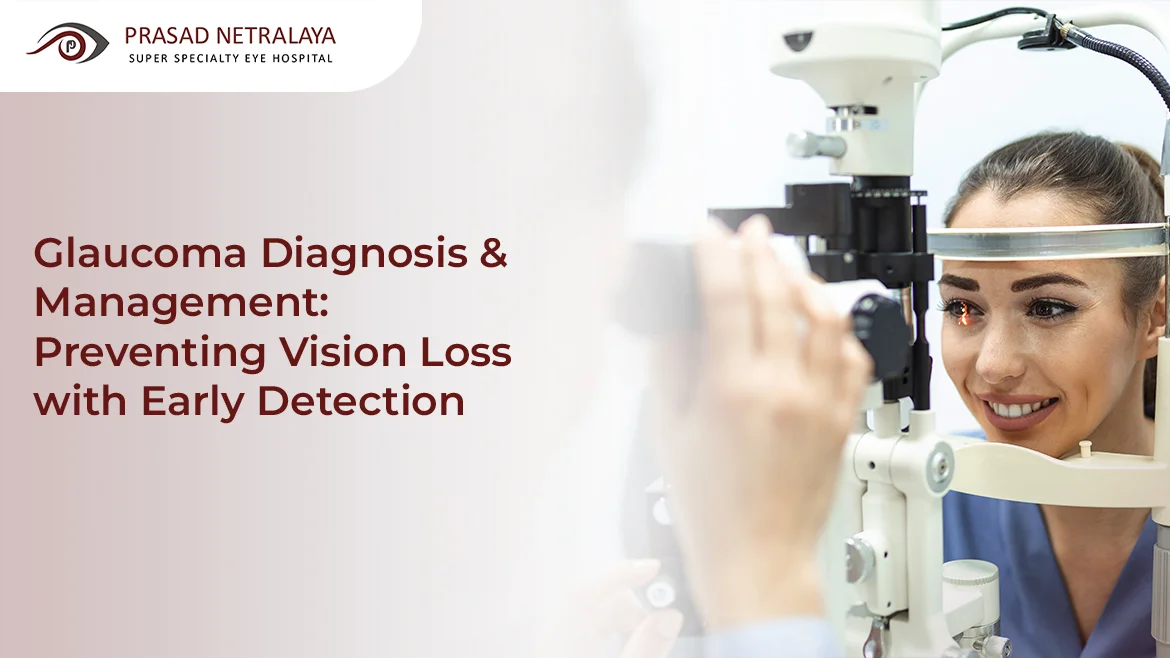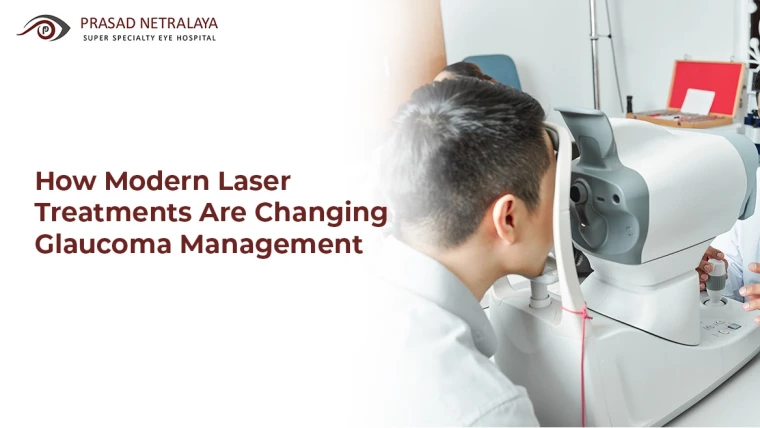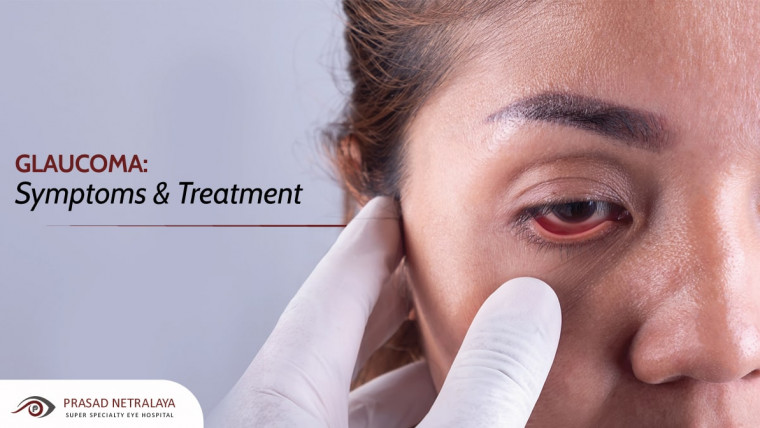Silent yet devastating, glaucoma is one of the leading causes of irreversible blindness worldwide. Often progressing without obvious symptoms, it can quietly damage the optic nerve until significant vision loss has already occurred.
This is why glaucoma diagnosis is critical, it allows for timely detection and intervention before it’s too late.
In India, the disease affects nearly 11.9 million people, while 8.9 million individuals are already living with blindness. Shockingly, glaucoma contributes to 12.8% of all blindness cases in the country, according to The New Indian Express.
These figures highlight the pressing need for early detection and effective management to protect vision and preserve quality of life.
Let’s delve into how glaucoma diagnosis and innovative treatment strategies can stop this condition in its tracks.
Table of Contents
What is Glaucoma?
Glaucoma refers to a group of eye conditions that harm the optic nerve, most often caused by elevated pressure within the eye, known as intraocular pressure (IOP). There are different types, including open-angle, angle-closure, and normal-tension glaucoma, and each presents unique challenges in diagnosis and treatment.
As glaucoma develops gradually and typically lacks pain or visible symptoms in its early stages, routine eye examinations are essential for early detection.
Also, read: What are the Causes of Glaucoma? And More on its Types and Treatment.
The Importance of Early Glaucoma Detection
One of the most effective ways to prevent vision loss from glaucoma is to catch it early, before permanent damage is done. During a comprehensive eye exam, ophthalmologists check for elevated IOP, examine the optic nerve, and assess visual fields.
Advanced imaging techniques like Optical Coherence Tomography (OCT) and visual field tests have made early detection more accurate and accessible. Especially for those with a family history of glaucoma, early screenings are non-negotiable.
Remember: Once vision is lost to glaucoma, it cannot be restored. But early intervention can slow or even halt its progression.
Glaucoma Diagnosis: What to Expect?
If your eye doctor suspects glaucoma, they will perform a series of tests to confirm the diagnosis, including:
- Tonometry: Measures intraocular pressure
- Ophthalmoscopy: Examines the optic nerve for damage
- Perimetry: Tests for blind spots in the peripheral vision
- Gonioscopy: Evaluates the drainage angle in the eye
- Pachymetry: Measures corneal thickness
These diagnostic tools together help determine not only the presence of glaucoma but also its type and severity, crucial factors in tailoring treatment.
Glaucoma Treatment Options at Prasad Netralaya: What’s Available?
While glaucoma can’t be cured, there are multiple effective glaucoma treatment options designed to control eye pressure and prevent further vision loss. The most suitable treatment varies based on the type of glaucoma and how far the condition has advanced.
1. Oral Medications
Medicated eye drops are commonly the initial step in managing glaucoma. They either reduce fluid production in the eye or improve drainage, thereby lowering IOP.
2. Laser Therapy
Laser procedures like Selective Laser Trabeculoplasty (SLT) or Laser Peripheral Iridotomy (LPI) help improve fluid outflow or create new drainage pathways.
Related blog: How are Modern Laser Treatments for Glaucoma Changing Management?
3. Surgery
For advanced cases or when medications and laser fail, surgical options like trabeculectomy or minimally invasive glaucoma surgeries (MIGS) offer long-term control of eye pressure.
The key to success in any of these treatments lies in early glaucoma detection and consistent follow-ups.
Lifestyle Tips to Support Glaucoma Management
In addition to clinical interventions, small lifestyle adjustments can support eye health and help prevent vision loss from glaucoma:
- Maintain a healthy diet rich in antioxidants
- Stay physically active to reduce eye pressure
- Avoid smoking and excessive caffeine
- Follow your treatment regimen strictly
- Attend regular eye check-ups, especially if you’re over 40 or have a family history of glaucoma
Final Thoughts: Don’t Wait for Symptoms
While glaucoma-related vision loss cannot be reversed, it can often be prevented with timely intervention. By prioritizing glaucoma diagnosis through regular eye screenings and exploring timely glaucoma treatment options at Prasad Netralaya, patients can preserve their vision and live full, active lives.
For those seeking trusted care, Prasad Netralaya offers comprehensive glaucoma management—from advanced laser surgeries to oral medications—led by a team of expert eye surgeons. With cutting-edge technology and personalized care, we’re here to help you protect your sight before it’s too late.
Take the First Step Toward Protecting Your Vision!
Don’t let glaucoma steal your sight silently. Book your comprehensive eye screening at Prasad Netralaya today and take control of your eye health. Whether you need early diagnosis, laser treatment, or expert-guided medication plans, our experienced glaucoma specialists are here to help you every step of the way.
Schedule your appointment now!
Frequently Asked Questions (FAQs)
1. What makes glaucoma diagnosis so important?
Glaucoma diagnosis is crucial because the disease shows no symptoms in its early stages. Detecting it early can prevent irreversible vision loss.
2. How often should I get a glaucoma diagnosis check?
If you’re over 40 or have a family history of glaucoma, you should get a glaucoma diagnosis every 1–2 years to monitor eye pressure and optic nerve health.
3. Can a glaucoma diagnosis be done without symptoms?
Yes, most glaucoma diagnoses happen during routine eye exams, even before any symptoms appear (highlighting the importance of regular screenings).
4. What tests are used in a glaucoma diagnosis?
A complete glaucoma diagnosis typically includes eye pressure measurement, optic nerve imaging, visual field testing, and angle examination.
5. Does early glaucoma diagnosis guarantee saved vision?
While it can’t reverse damage, early glaucoma diagnosis allows timely treatment that can stop or slow progression, helping preserve remaining vision.
Dr. Vikram Jain, M.S. had his medical training (MBBS) from Kasturba Medical College, Mangalore, India. He did his master’s in Ophthalmic surgery from Kasturba Medical College, Manipal. He currently manages the Glaucoma department of Prasad Netralaya hospital.



